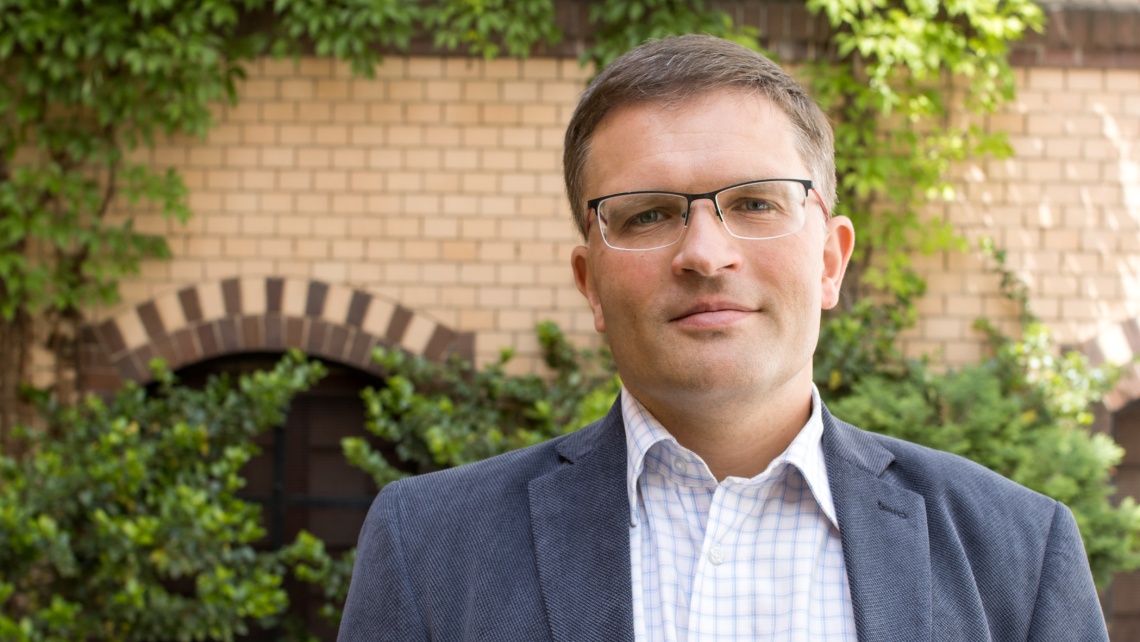structural development
Jan Marek, project manager from Liberec - new to the ENO innovation team
- structural development
- Hits: 4752

Hello!
Like every Friday, I'm introducing the new employees of the Structural Change working group at the ENO. Today it is project manager Jan Marek.
Jan Marek from Liberec studied political science, public administration and sociology at Charles University in Prague and spent his year abroad before completing his master's degree at the University of Helsinki.
Jan has been part of our innovation team at the Structural Change working group since June. We present it here.
Jan, you were already dealing with innovation management professionally before you came to ENO. When and how did you decide to specialize in it?
I was already involved in regional development at the university in Prague and also in Helsinki . already realized during my studies that only regions that are innovative remain attractive for innovative companies. If the region and its companies are always at the forefront and continue to develop step by step, the chance of being spared from crises increases. The best example of this is Nokia, the city - and the company - that stuck in my mind.
How come? What can be learned from this small Finnish town in the field of innovation?
At the end of the 19th century, a small paper mill was founded in Nokia, in central Finland. The owners were curious and constantly invested in development. Therefore, they have become world-famous producers of rubber products, cables, tires, home appliances, radios, and cell phones, in that order. Without a sense of purpose, without curiosity, without innovative thinking and without the commitment of talented employees, a small paper factory in the middle of the forest would never have become the largest mobile phone manufacturer.
How did you find your way into the ENO innovation team?
I have been working with the Zittau urban development company on Czech-German projects for about a year. That's how I first heard about ENO and the projects related to structural change. A little later I found out that ENO was looking for a project manager. I applied for the position and am very pleased that my application was successful.
Creating added value is important to you in your work - and so you also get involved in your free time, for example for the better development of cycle paths in the Liberec region. How would you see your experience dealing with Czech authorities in comparison with German authorities?
The authorities tick differently everywhere than the entrepreneurs or active people from clubs and other organizations of civil society. You have to work with that and you have to be prepared for the fact that everything takes a long time with the authorities. I would say that Czech officials are more willing to look for new and innovative ways. In Germany, I find the processes clearer and clearer for everyone. But anyway, it always depends on individual people and how you approach them. I am of the opinion that you have to appear positive in order to transfer the positivity to the civil servants.
Large and complex projects do not seem to deter you - you are experienced in dealing with EU subsidies, as a project developer and also as a supervisory board member in the field of health care in the Liberec region. What are you looking forward to most about the structural change in the district of Görlitz?
I'm looking forward to the creative process when we look for new paths together with our partners and colleagues. The Görlitz region has had bad luck several times in history. And overcoming these given facts in a few years' time is a real challenge for everyone in ENO and the region. And that's what I'm looking forward to.
Are there already projects or ideas that the municipalities have brought to your attention that you are particularly looking forward to?
How intensively even the smallest municipalities deal with the innovations made a great impression on me in the first discussions. Many communities are in debt. Despite or because of this, the officials mentioned above are also considering intensively how things can be done differently. How the small towns can prosper again. Everyone knows that new thinking and new ideas are the only way.
Where do you see the district of Görlitz in 2038, what will you hopefully be able to say when you look back on the process?
I hope that the district of Görlitz will be a young region again. In addition to large companies, there are several small companies with unique products. I also wish that the district uses the location in the border triangle and companies cooperate freely across borders. The train connection will also help the region to grow in 2038: in 1 hour and 30 minutes in Prague or Berlin, in less than 40 minutes in Dresden. But first of all, we have to slowly and steadily advance the future and involve the citizens of the region in the great process of structural change.
Thank you for rating this post.
